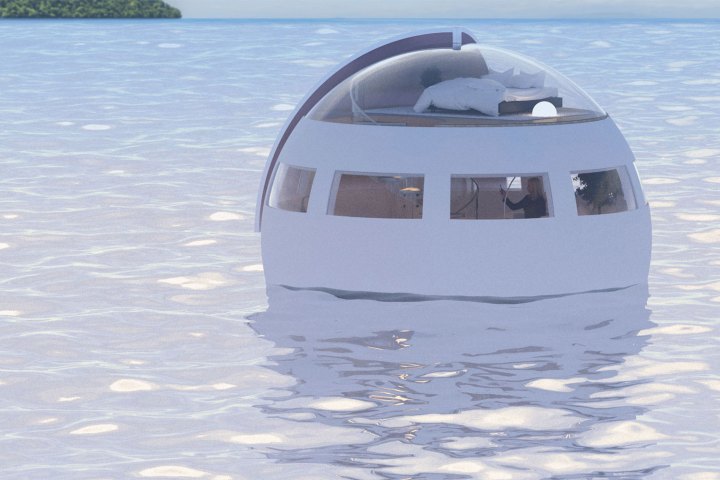
The ambitious plan is set to become a reality before the end of the year, according to the operator of Huis Ten Bosch, a Dutch-inspired theme park near Nagasaki in Japan.
Each pod will reportedly have two levels — a lower one for relaxing and dining, and an upper one with a bed from where you can gaze at the night sky.
Aimed squarely at those who enjoy life’s quirkier offerings, your aquatic hotel room will depart from the shore of the Huis Ten Bosch park in the evening. From there you’ll float a distance of about 4 miles (6 km) across the bay to a small island where you’ll be able to spend the following day enjoying a number of yet-to-be-built attractions. A second night in the pod will return you across the water, back to Huis Ten Bosch.
Possible drawbacks include rough crossings when the weather’s bad, though in such cases you’ll likely be offered alternative accommodation on solid ground. And unless there are plans to have speedboats whizzing back and forth across the water, you can forget any ideas about calling room service.
Those behind the ambitious project are yet to reveal how the pods will reliably reach their destination, an important point if they want to reassure guests that they really will be waking up at a spot four miles away, rather than 40.
A night in the pod is expected to cost around 35,000 yen ($315), though you may as well double that as it seems this is a two-nights-minimum deal.
Japan’s Huis Ten Bosch park appears to have a penchant for peculiar hotels. Two years ago it made international headlines with the launch of a hotel staffed entirely by robots. Features include a robot dinosaur to check you in, facial recognition technology for door locks, a tulip-shaped concierge robot for every guest, and sensor panels that detect your body heat and adjust the room’s temperature accordingly.


